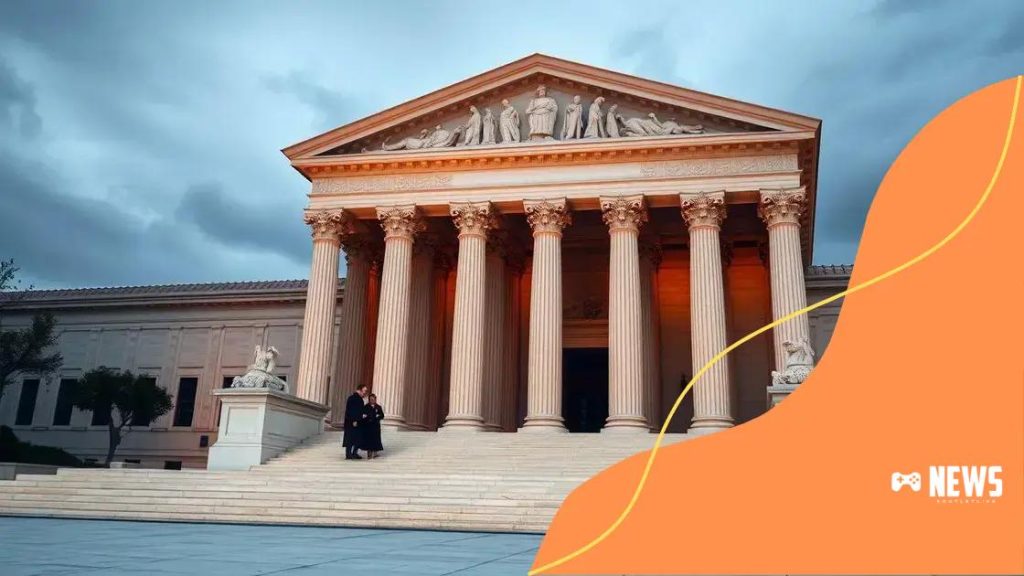Supreme Court decisions in May 2025: What to expect

Supreme Court decisions in May 2025 will significantly impact voting rights, affirmative action, and health care regulations, shaping the legal landscape and societal norms in the United States.
Supreme Court decisions in May 2025 promise to be pivotal, influencing various aspects of law and society. Curious about the cases that could change everything? Let’s dive in.
Key Supreme Court cases to watch in May 2025
As we approach May 2025, there are several key Supreme Court cases that are likely to capture public attention and shape the future of American law. Each of these cases addresses pressing issues and could yield significant changes in established legal precedents.
Major Cases Coming Up
Among the notable cases to watch, several have stirred debate among legal experts and the general public alike. These cases encompass topics such as civil rights, health care, and affirmative action.
- Case A: This case challenges certain limitations on voting rights and could redefine access to the polls.
- Case B: Focused on health care regulations, it addresses the balance between federal and state powers.
- Case C: This critical case concerning affirmative action in education may impact college admissions processes.
In addition to these cases, the Supreme Court’s decisions may also reflect broader social trends and shifts in public opinion. Observers are paying close attention to how these rulings will align with the current political climate. The outcomes could lead to pivotal changes, especially in areas of civil liberties and social justice.
Implications for Society
The implications of these key cases are significant, as they are likely to influence not just legal frameworks but also societal norms. As the Supreme Court deliberates, various interest groups are mobilizing to advocate for their positions. These organizations understand that a single ruling can have far-reaching consequences.
As we wait for the Supreme Court decisions in May 2025, it is crucial to understand the potential impacts of these cases. Many citizens may find themselves more engaged in legal issues, recognizing that these rulings affect their daily lives.
Implications of upcoming rulings
The upcoming rulings from the Supreme Court are set to have profound implications for various aspects of American life. Many people are eager to understand how these decisions may affect their rights and freedoms.
Legal Impact
Each ruling not only interprets laws but also sets a precedent that can influence future cases. The decisions made by the Supreme Court have the power to affect everything from educational policies to voting rights.
- Impact on Voting Rights: Upcoming rulings may change how laws are applied to ensure all citizens can vote.
- Education: Decisions regarding affirmative action could alter admission processes in schools.
- Health Care: The rulings could reshape regulations that impact how health care is accessed and delivered.
The ramifications of these rulings extend beyond the court itself, often sparking public debates and movements. Citizens may become more active in advocating for their rights in response to these changes. For instance, a ruling that loosens restrictions on voting could prompt organizations to mobilize efforts to ensure that all individuals have access to the polls.
Social Consequences
When the Supreme Court hands down its decisions, these implications reverberate through society. Many individuals and groups will rally around specific issues, leading to heightened activism. People might feel empowered to voice their opinions and take action in their communities. This engagement is crucial for a healthy democracy, as it encourages participation and awareness among citizens.
Furthermore, public sentiment can shift dramatically depending on the rulings. In this way, the Supreme Court not only interprets the law but also plays a critical role in the social landscape of the country. Observers will be closely watching how the decisions made in May 2025 will shape societal attitudes and actions.
Historical context of recent Supreme Court decisions

Understanding the historical context of recent Supreme Court decisions is crucial for grasping their significance. The Court’s rulings often reflect longstanding legal traditions and the evolving values of society.
The Evolution of Legal Precedents
Over the years, the Supreme Court has established many important precedents that shape the legal landscape. These precedents serve as the foundation for new rulings. For instance, past cases have influenced how courts view civil rights, freedom of speech, and reproductive rights.
- Brown v. Board of Education: This landmark case ended racial segregation in schools and set a precedent for future civil rights cases.
- Roe v. Wade: This decision addressed reproductive rights and continues to affect debates surrounding abortion laws.
- Obergefell v. Hodges: This case legalized same-sex marriage, demonstrating the Court’s evolving stance on civil liberties.
The rulings in the past provide a roadmap for understanding current issues being addressed by the Court. While society changes, these precedents remind us of the legal principles that guide judicial decision-making. Each case builds upon previous rulings, creating a complex web of law influenced by historical events.
Major Historical Events Impacting the Court
Several key historical events have shaped public perception and judicial philosophy. The Civil Rights Movement of the 1960s significantly impacted how the Supreme Court approached issues of inequality. Similarly, movements advocating for gender rights and LGBTQ+ rights have influenced the Court’s rulings in recent years. Understanding these events is vital for comprehending how legal interpretations have shifted.
As we look to the future, it is essential to consider how past decisions will influence upcoming cases. The historical context not only informs judges but also affects how the public responds to judicial measures.
Expert opinions on likely outcomes
Analyzing expert opinions on likely outcomes of Supreme Court cases can provide valuable insights into what may happen in May 2025. Numerous legal scholars and analysts offer their perspectives based on past rulings and current legal trends.
Legal Experts’ Predictions
Experts predict that several key issues will dominate the Court’s discussions. Understanding their assessments helps the public grasp the potential implications of various rulings.
- Voting Rights: Many experts believe the Court may favor cases that expand voter access. This could lead to significant changes in laws governing elections.
- Affirmative Action: Analysts are divided, with some suggesting that recent shifts in public opinion may influence a ruling that limits affirmative action in education.
- Health Care Regulations: Experts anticipate that cases addressing health care policies may result in more stringent regulations, impacting how citizens access medical services.
The predictions of these experts are rooted in detailed analyses of existing laws as well as the current political and social climate. As the Court addresses pressing judicial matters, the opinions of legal scholars provide a lens through which we can understand the evolving landscape of American law.
Public Reactions to Expert Insights
Public interest in the opinions of legal experts often leads to discussions about how these rulings will affect everyday lives. Individuals and groups closely monitor expert commentary, which can shape their responses to potential changes in the law. For example, communities impacted by possible voting rights changes engage in advocacy to ensure their voices are heard.
Understanding expert predictions allows citizens to stay informed and prepared for the outcomes of critical cases. This interaction between expert analysis and public awareness plays a vital role in a healthy democracy.
Public reaction and media coverage
The public reaction and media coverage of Supreme Court decisions plays a significant role in shaping the narrative around legal rulings. As cases unfold, citizens watch closely, often expressing their views through various platforms.
Media’s Role in Coverage
Media outlets provide crucial updates and analyses on Supreme Court decisions. This coverage helps the public understand the implications of rulings and fosters discussion. Major stories often highlight:
- Key Decisions: Reports focus on the rulings that could significantly impact society, such as voting rights or civil liberties.
- Expert Opinions: Journalists frequently include insights from legal scholars and analysts, which help contextualize decisions.
- Public Reactions: Coverage often features voices from various communities, showcasing how different groups feel about the outcomes.
The way the media frames these stories can influence public perception. For example, a ruling that expands rights may receive positive coverage, while a decision that limits rights might draw criticism and backlash.
Social Media Amplification
Social media platforms have changed how people respond to Supreme Court rulings. Citizens can quickly share their thoughts, organize protests, or support advocacy efforts. Posts can go viral, drawing attention to specific issues and mobilizing support.
Hashtags related to key cases often trend across platforms, highlighting the importance of public engagement. These conversations can impact how lawmakers respond to public sentiment, making it critical for citizens to voice their concerns and opinions.
FAQ – Frequently Asked Questions about Supreme Court Decisions in May 2025
What are the key issues expected in the upcoming Supreme Court decisions?
Key issues include voting rights, affirmative action, and health care regulations, all of which have significant societal implications.
How does media coverage influence public perception of court rulings?
Media coverage shapes narratives around court rulings, highlighting key decisions and expert opinions, which can affect how the public reacts.
Why is public engagement important during Supreme Court deliberations?
Public engagement ensures diverse voices are heard and can influence lawmakers to consider the impact of decisions on communities.
What role do experts play in interpreting court decisions?
Experts analyze and predict the potential outcomes of court decisions, helping the public understand the complexities and implications of the law.





